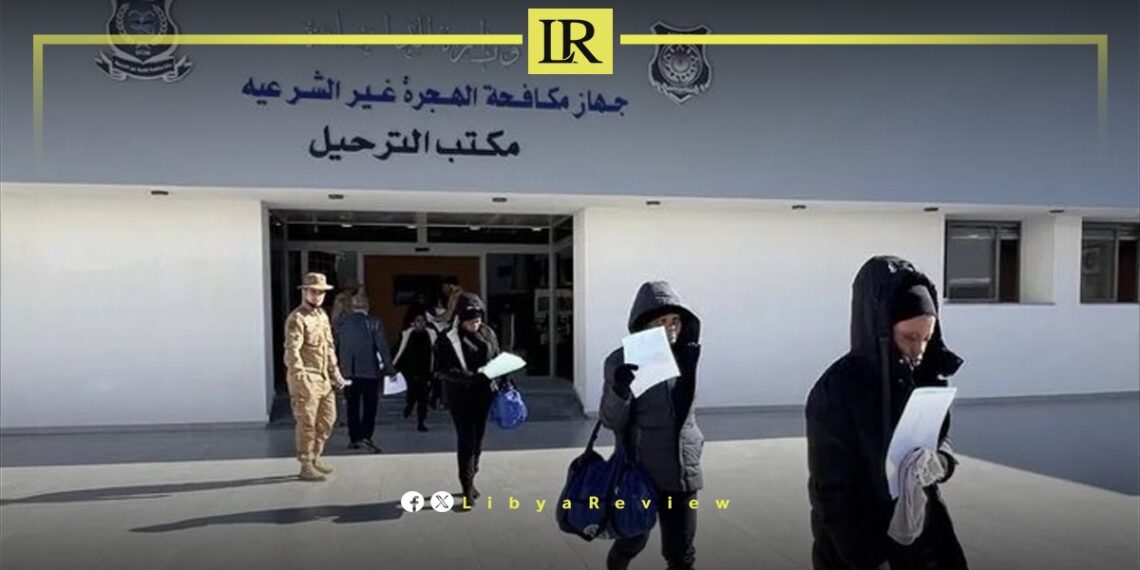The Illegal Migration Control Agency has repatriated 174 Nigerian migrants voluntarily to their home country via Mitiga International Airport.
Mohammed Brida, Assistant for Security Affairs at the Illegal Migration Control Agency, told RT that the repatriated group included children, women, and men.
Brida noted that “the repatriation was conducted as part of ongoing cooperation between Libya and Nigerian authorities to facilitate the voluntary return of illegal migrants to their countries.”
Voluntary repatriations continue as a measure to effectively address illegal migration and provide necessary support to migrants wishing to return to their homelands.
In a separate context, an official delegation from the Libyan Ministry of Foreign Affairs and International Cooperation participated as observers at the invitation of the European Union Agency for Asylum in the second regional conference for senior officials. The conference, titled “Enhancing a Cooperative Approach to International Protection for Vulnerable Persons Along Migration Routes, Including Women and Children,” was held in The Hague, Netherlands, from June 25 to 27.
The conference sessions focused on “strengthening cooperation between European and North African countries to find the best ways to provide protection for unaccompanied minor migrants along migration routes.”
The conference is part of the EU Agency for Asylum’s regional pilot project for North African countries and Niger (RPP).
Libya has been in chaos since a NATO-backed uprising toppled longtime leader Muammar Gaddafi in 2011. The county has for years been split between rival administrations.
Libya’s economy, heavily reliant on oil, has suffered due to the ongoing conflict. The instability has led to fluctuations in oil production and prices, impacting the global oil market and Libya’s economy.
The conflict has led to a significant humanitarian crisis in Libya, with thousands of people killed, and many more displaced. Migrants and refugees using Libya as a transit point to Europe have also faced dire conditions.
The planned elections for December 2021 were delayed due to disagreements over election laws and the eligibility of certain candidates. This delay has raised concerns about the feasibility of a peaceful political transition.
Despite the ceasefire, security remains a significant concern with sporadic fighting and the presence of mercenaries and foreign fighters. The unification of the military and the removal of foreign forces are crucial challenges.


